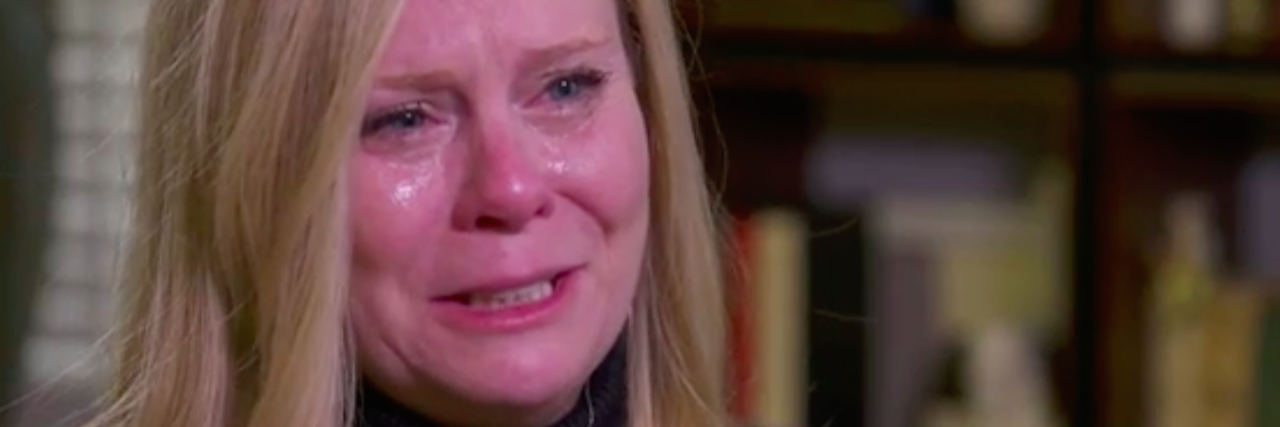Another tragic shooting took place this week in Rancho Tehama, a rural town in Northern California. On Monday, the LA Times reported, Kevin Janson Neal, 44, shot his wife. The next morning he drove to an elementary school, where he killed four people and injured others. Neal was eventually shot and killed by the police.
• What is Bipolar disorder?
Politicians are often quick to blame mental illness after a mass shooting. When a shooting at a Texas church took 26 lives earlier this month, President Trump said in a news conference that “mental health” — not guns — was the real problem. He called the Texas shooter “a very deranged individual.”
Research shows being diagnosed with a mental illness is not a good indicator for predicting violence. Less than 3 to 5 percent of U.S. crimes involve people with mental illness. Even if someone has been diagnosed with a serious mental illness, factors like a history of violent victimization early in life, substance abuse and exposure to violence are more reliable indicators of “who” becomes violent. Many times, shooters are labeled “mentally ill,” before any information about their mental health is released.
With this recent shooting in Rancho Tehama, in an interview with NBC news, Neal’s sister Sheridan Orr opened up about her brother’s history of mental health challenges. Although she doesn’t name a specific diagnosis, she said she watched her brother’s mental health deteriorate over the years.
“He just continued to devolve and descend into conspiracy theories and hallucinations and delusions of grandeur,” Orr said. “He was a good kid, I mean, he was always too sensitive for this world, in so many ways he seemed to feel things more acutely, and often couldn’t manage those emotional responses. As we grew up, you know, the problems became bigger, and he still had no coping skills, and the emotions became bigger.”
She said it got to the point where she couldn’t recognize him anymore.
Editor’s note: The following video might be upsetting for some readers. Know you can always contact the Crisis Text Line at 741-741.
There were so many triggers, I have no idea, and I would pay anything to know why he would do this… To think that somebody you know and love and lived with for 20 years would drive a car to a school, it’s heartrending for those people.
According to reports, Neal was well-known by local authorities. CBS News reported that earlier this year, his neighbor had a restraining order filed against him after he attacked her and her mother-in-law. During that time, he was ordered to give up his firearms. Despite that order, police were called multiple times about shots being fired from his property. When they arrived, Neal wouldn’t open the door. The weapon he used on Monday and Tuesday were illegally manufactured guns, and he also had handguns that were not registered to him.
Orr said, along with restricting her brother’s access to guns, her family needed a way to get Neal mental health care:
“We cannot help but feel that a) he needed better mental health care, and we needed a way to get that for him, because that is something I think would have changed this story. And b) He had no business with guns. And as painful as this is, we have to have this discussion as a nation.”
Although people who live with mental illnesses are more likely to be victims of violence than violent themselves, according to the National Alliance on Mental Illness, (NAMI) there are certain factors that may increase risk of violence among a small number of individuals with mental illness, including co-occurring abuse of alcohol or illegal drugs, past history of violence, being young and male and untreated psychosis.
For people those with mental illnesses who will not voluntarily seek help — and are deemed to have a “serious mental illness” (like schizophrenia) — counties in California can opt into Laura’s Law, California’s Assisted Outpatient Treatment (AOT) law. AOT provides “court ordered treatment, under certain stringent conditions, for a person with severe mental illness,” according to NAMI.
Tehama County, where the shooting took place, had not implemented this law.
While groups like NAMI say AOT reduces homelessness, violence and incarceration, many say treating anyone without their consent is a violation of patient’s rights. In a piece criticizing the Helping Families in Mental Health Crisis Act — legislation authored by former Rep. Tim Murphy which included AOT expansion — John M. Grohol, founder and CEO of Psych Central, said, “This is about helping families deal with a family member who has an apparent mental illness — not about helping the actual people with a mental illness.”
During a mental health crisis, people are more likely to contact the police than get medical help. This leads to between 25 and 40 percent of all Americans with a mental illness being jailed or incarcerated at some point in their lives. Currently, at least 400,000 inmates in jail live with some type of mental illness
Orr said she’s speaking out because she doesn’t want another family to end up in her position — feeling like there’s more that could have been done. “We have to do something,” she said. “We have to do better.”
If you or someone you know needs help, visit our suicide prevention resources page.
If you need support right now, call the National Suicide Prevention Lifeline at 1-800-273-8255, the Trevor Project at 1-866-488-7386 or reach the Crisis Text Line by texting “START” to 741-741.
Lead photo via NBC News

